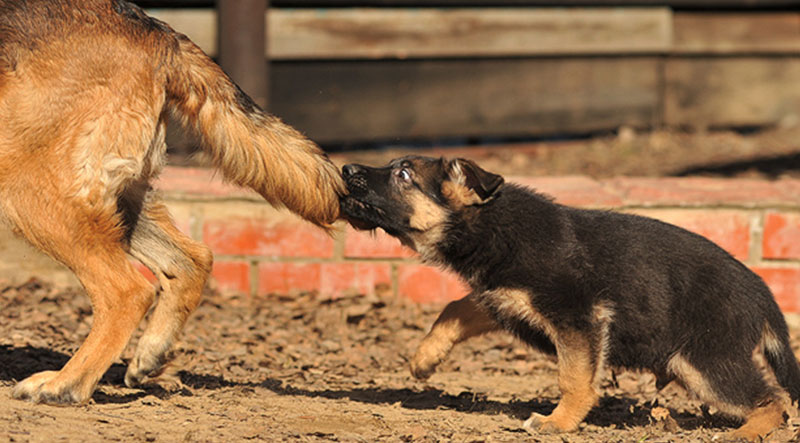Even though the field of Canine behaviour therapy is rapidly expanding and new information relevant to dogs is coming out daily, it is shocking to find out what is still being taught by “old school” trainers and behaviourists. Cruel outdated techniques like alpha rolling, wolf pack theory, dominance, rank reversal/reduction programs and ignoring your dog for prolonged periods of time are advised frequently. These kinds of techniques are all aimed at being as unpleasant and unpredictable to your dog as possible, thus leading to temporary behavioural suppression – which many people mistake as a cure to behaviour problems.
Modern behaviourists try to discourage anyone from using aversive, inhumane techniques, especially after the long term fall out of their implementation became known. It is clear that those “cures” often results in more problems than fixes. Thankfully, the field of Animal Behaviour’s rapid growth has led to proper research being done into the emotional state of our pets. With this research, new methods of behaviour modification and training have become available.
Below you will find a few useful books to read if you are interested in broadening your understanding of your dog:
Dogs: a startling new understanding of Canine origin, Behaviour and Evolution – Raymond and Lorna Coppinger (2001). Scribner. ISBN 0-684-85530-5
Don’t shoot the dog – Karen Pryor. (1985) Bantam Books ISBN 0-553-25388-3
The culture clash – Jean Donaldson (1996) Lasar Books. ISBN 0-9684207
How dogs Learn – Mary R Burch & Jon S Bailey (1999) Howell Book House. ISBN 0-87605-371-1
The most common behaviour problems we see in everyday consulting include:
- Separation related distress (Separation Anxiety)
- Destructiveness.
- Digging.
- Chewing.
- Barking.
- Jumping up.
- Aggression towards other dogs.
- Hyperactivity.
- “Untrainable” dogs.
- Lack of obedience training.
- Aggression towards strangers/visitors/people of a different culture/children.
- Pulling on the leash.
- Not coming when called.
- Noise phobias.
It is important for people to know that help is available. Also, remember that the longer problem behaviour has been allowed to continue, the more difficult it will be to address. Contact us via the “contact us” page for assistance sooner rather than later, as it really does make a big difference.
We are definitely in favour of prevention and encourage all new dog owners to enrol in a good puppy class.
Of course, puppy classes are by no means a cure for behaviour problems; after all, behaviour is not static and will change constantly and in accordance to the environment the dog is in, but they do help and can prevent many other problems. So, if you have a puppy, take the time now to invest in the next 18 years of life with your dog by contacting any of the CAPBT members who run puppy classes – find one in your area on https://capbt.org or https://capbtsa.com if you’re in South Africa.





